Project partners
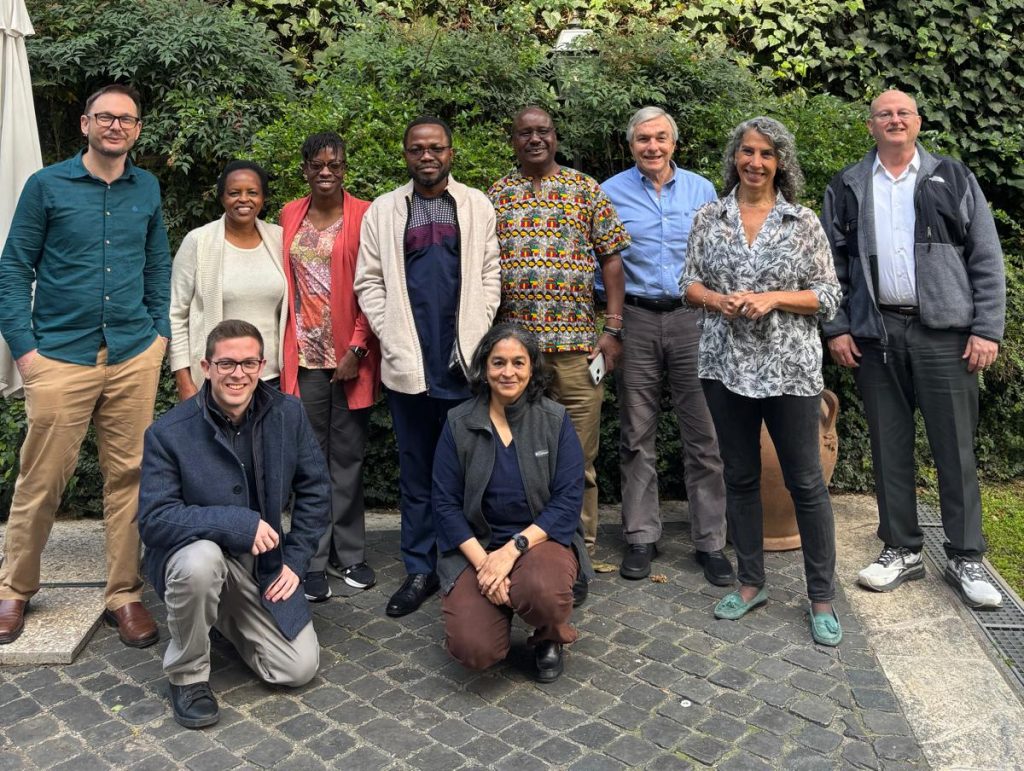
Michigan State University, Department of Agricultural, Food, and Resource Economics
The Department of Agricultural, Food, and Resource Economics (AFRE) at Michigan State University is dedicated to improving lives through management and economics. With over 50 faculty members, 60 graduate students, and 400 undergraduate students, AFRE tackles societal policy issues and solves practical problems for producers, consumers, and the environment. Renowned as one of the leading departments in its field in the United States, AFRE prepares students to address global food, agricultural, and natural resource system needs.
Our Colleagues at MSU – AFRE:
 Dr. Thomas Reardon, a distinguished professor at Michigan State University and a Non-Resident Senior Research Fellow at IFPRI, specializes in the transformation of food value chains. With significant fieldwork across Africa, Asia, and Latin America, Tom’s research impacts food industry strategies, consumption, nutrition, and employment. A globally recognized economist with nearly 47,000 citations on Google Scholar, he teaches several classes at MSU and has mentored 100 students since 1992.
Dr. Thomas Reardon, a distinguished professor at Michigan State University and a Non-Resident Senior Research Fellow at IFPRI, specializes in the transformation of food value chains. With significant fieldwork across Africa, Asia, and Latin America, Tom’s research impacts food industry strategies, consumption, nutrition, and employment. A globally recognized economist with nearly 47,000 citations on Google Scholar, he teaches several classes at MSU and has mentored 100 students since 1992.

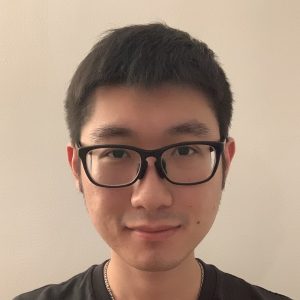 MingDa Li is a Ph.D. student in Agricultural, Food and Resource Economics and a graduate research assistant at Michigan State University, East Lansing. He holds a M.Sc. in Agricultural Economics from McGill University, Montréal. His research focuses on agricultural value chain, rural development, dynamics of income inequality and food security in Asia and Africa. MingDa has conducted research on agricultural productivity in Tanzania, and the quantification of food security and households’ resilience to shocks in Malawi. His current works are related to agricultural value chains in Asia and Africa.
MingDa Li is a Ph.D. student in Agricultural, Food and Resource Economics and a graduate research assistant at Michigan State University, East Lansing. He holds a M.Sc. in Agricultural Economics from McGill University, Montréal. His research focuses on agricultural value chain, rural development, dynamics of income inequality and food security in Asia and Africa. MingDa has conducted research on agricultural productivity in Tanzania, and the quantification of food security and households’ resilience to shocks in Malawi. His current works are related to agricultural value chains in Asia and Africa.
International Food Policy Research Institute – IFPRI
The International Food Policy Research Institute (IFPRI) provides research-based policy solutions to sustainably reduce poverty and end hunger and malnutrition in developing countries. Established in 1975, IFPRI has more than 600 employees working in over 60 countries and is a research center of CGIAR. IFPRI’s work spans critical areas such as climate-resilient food supplies, healthy diets, inclusive markets, agricultural and rural economy transformation, and strengthened institutions and governance, emphasizing a multidisciplinary approach to reshaping food systems.
Our Colleagues at IFPRI:
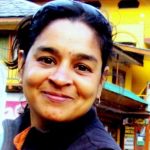
Dr. Sudha Narayanan, a Senior Research Fellow at IFPRI based in New Delhi, possesses expertise in agriculture, food policy, and human development. Her research interests encompass agrarian change, technology adoption, and nutrition security, utilizing survey-based research and microeconometric approaches. Notable works include studies on the impact of COVID-19 in South Asia, youth in agriculture, and shrimp value chains in Bangladesh. Dr. Narayanan’s research also focuses on contract farming, agrifood value chains, public policies for food security and employment, and agriculture-nutrition linkages.
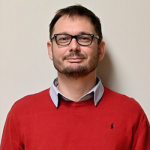
Dr. Ben Belton, an IFPRI Research Fellow based in Dhaka and an Associate Professor at Michigan State University, is an applied interdisciplinary social scientist with over 15 years of field experience across South and Southeast Asia. His research interests span value chains, food systems, livelihoods, rural transformation, agrarian change, and their links to food and nutrition security, poverty, well-being, and the environment. Ben has published more than 80 peer-reviewed journal articles using qualitative and quantitative methods to develop evidence for effective policy actions.
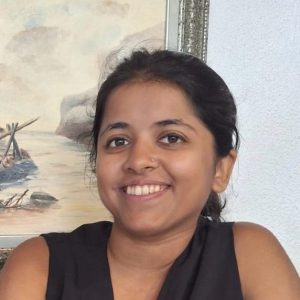 Aditi Gautam, a Research Analyst at IFPRI based in New Delhi, holds an MSc in Public Policy from NYU and Bachelor’s in Economics from UC San Diego. Her current research at IFPRI focuses on evaluating an app-based extension software for farmers in India. She is also engaged in diverse research projects studying multiple agriculture value chains, farmer storage and marketing behaviour, measurement error in agriculture surveys, and voluntary sustainability certifications among others using mixed methods. She has 5 years of experience working as a researcher in organizations like JPAL, EPIC UChicago, and NYU Africa House.
Aditi Gautam, a Research Analyst at IFPRI based in New Delhi, holds an MSc in Public Policy from NYU and Bachelor’s in Economics from UC San Diego. Her current research at IFPRI focuses on evaluating an app-based extension software for farmers in India. She is also engaged in diverse research projects studying multiple agriculture value chains, farmer storage and marketing behaviour, measurement error in agriculture surveys, and voluntary sustainability certifications among others using mixed methods. She has 5 years of experience working as a researcher in organizations like JPAL, EPIC UChicago, and NYU Africa House.
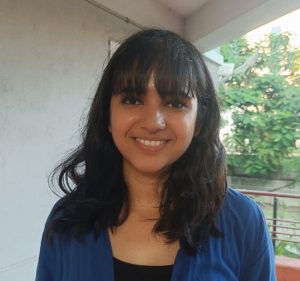 Bhumika Mishra has completed her master’s degree in Environmental Economics from Madras School of Economics, Chennai. She holds a bachelor’s degree in Economics from Fergusson College, Pune. Bhumika has interned at NABARD and USI, conducting research on agricultural value chains and bilateral trade. Her academic projects span environmental valuation, pollution control economics, and health impact assessments. With interests in agricultural and energy economics, Bhumika applies her skills in STATA, QGIS, and Python to analyze environmental and economic data.
Bhumika Mishra has completed her master’s degree in Environmental Economics from Madras School of Economics, Chennai. She holds a bachelor’s degree in Economics from Fergusson College, Pune. Bhumika has interned at NABARD and USI, conducting research on agricultural value chains and bilateral trade. Her academic projects span environmental valuation, pollution control economics, and health impact assessments. With interests in agricultural and energy economics, Bhumika applies her skills in STATA, QGIS, and Python to analyze environmental and economic data.
Tegemeo Institute
Tegemeo Institute of Agricultural Policy and Development, part of Egerton University in Nairobi, Kenya, specializes in policy research within agriculture, rural development, natural resources, and the environment. Established to address micro and macroeconomic policy issues, the Institute focuses on farming, transportation, processing, marketing, and trade of agricultural products and inputs. Tegemeo’s mission is to conduct proactive policy research and advocacy to enhance food security, wealth creation, and environmental sustainability.
Our Partners at Tegemeo Institute:
 Dr. Lilian Kirimi, a Senior Research Fellow and Research Coordinator at Tegemeo Institute, holds a PhD in Agricultural Economics from Michigan State University. With over sixteen years’ experience in research on agriculture and food systems in Kenya and the region, she has provided leadership for research and advocacy on agricultural policy, institutional and policy reforms, and coordination within the agricultural sector. Her contributions include the formulation of policy documents such as the Agricultural Sector Transformation and Growth Strategy (ASTGS), Agriculture Policy, National Agriculture Research Systems Policy and Agriculture Sector Gender Policy.
Dr. Lilian Kirimi, a Senior Research Fellow and Research Coordinator at Tegemeo Institute, holds a PhD in Agricultural Economics from Michigan State University. With over sixteen years’ experience in research on agriculture and food systems in Kenya and the region, she has provided leadership for research and advocacy on agricultural policy, institutional and policy reforms, and coordination within the agricultural sector. Her contributions include the formulation of policy documents such as the Agricultural Sector Transformation and Growth Strategy (ASTGS), Agriculture Policy, National Agriculture Research Systems Policy and Agriculture Sector Gender Policy.
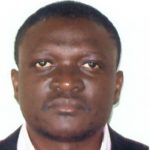 Dr. John Olwande, a Research Fellow at Tegemeo Institute with a PhD in Community Sustainability from Michigan State University, has 19 years of experience in economic and policy research in agriculture. His research areas include adoption of agricultural innovations, resilient and sustainable food systems, food and nutrition security, integration of smallholder farmers into markets and impact evaluation of policy and development programs. John contributed to the Africa Agriculture Status Report 2021 for the Africa Green Revolution Forum (AGRF) and the Africa Fertilizer and Soil Health Action Plan.
Dr. John Olwande, a Research Fellow at Tegemeo Institute with a PhD in Community Sustainability from Michigan State University, has 19 years of experience in economic and policy research in agriculture. His research areas include adoption of agricultural innovations, resilient and sustainable food systems, food and nutrition security, integration of smallholder farmers into markets and impact evaluation of policy and development programs. John contributed to the Africa Agriculture Status Report 2021 for the Africa Green Revolution Forum (AGRF) and the Africa Fertilizer and Soil Health Action Plan.
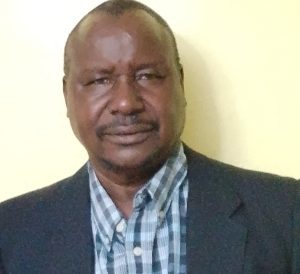 Francis Zabaiwa Karin, a Consultant at Tegemeo Institute with MSc coursework in Agricultural Economics from Egerton University, has over 30 years of experience in agricultural research and data analysis. His expertise spans food security analysis, agricultural enterprise development, poverty reduction, and climate-smart agriculture. His research contributions include studies on dairy industry structure, maize value chains, and climate change impacts. Karin has led numerous household surveys for organizations including AGRA, TechnoServe, and FEWSNET, focusing on agricultural productivity, market development, and food security across Kenya and East Africa. He regularly contributes analysis to national food security discussions through policy briefs and media engagement.
Francis Zabaiwa Karin, a Consultant at Tegemeo Institute with MSc coursework in Agricultural Economics from Egerton University, has over 30 years of experience in agricultural research and data analysis. His expertise spans food security analysis, agricultural enterprise development, poverty reduction, and climate-smart agriculture. His research contributions include studies on dairy industry structure, maize value chains, and climate change impacts. Karin has led numerous household surveys for organizations including AGRA, TechnoServe, and FEWSNET, focusing on agricultural productivity, market development, and food security across Kenya and East Africa. He regularly contributes analysis to national food security discussions through policy briefs and media engagement.
Partners from Rimisp
Rimisp, the Latin American Center for Rural Development, is a network that generates knowledge for the development of Latin American territories. With offices in Chile, Colombia, and Ecuador, Rimisp works to understand rural transformations and contribute to sustainable and inclusive development strategies. The organization bridges applied research and decision-making processes, promoting institutional transformation for territorial equity. Rimisp aims to create a Latin America where all individuals have equal opportunities to participate in fair, sustainable, and inclusive development.
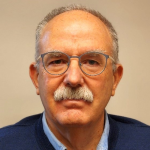 Dr. Julio A. Berdegué is Research Professor at the Catholic University of Chile, holding a PhD in Social Sciences from Wageningen University and an MSc in Agronomy from UC Davis. He has worked for FAO as Assistant Director-General and Regional Representative for Latin America and the Caribbean, and founded and led the influential think tank Rimisp. With over 16,000 references on Google Scholar, he has advised policy makers and published extensively on small-scale family farming, territorial development, rural non-farm employment and agrifood value chain transformation. Dr. Berdegué’s valuable contributions to the project concluded on July 15, 2024, marking the successful completion of his involvement in this phase of the research. His expertise and insights have been instrumental in shaping the project’s foundation and direction.
Dr. Julio A. Berdegué is Research Professor at the Catholic University of Chile, holding a PhD in Social Sciences from Wageningen University and an MSc in Agronomy from UC Davis. He has worked for FAO as Assistant Director-General and Regional Representative for Latin America and the Caribbean, and founded and led the influential think tank Rimisp. With over 16,000 references on Google Scholar, he has advised policy makers and published extensively on small-scale family farming, territorial development, rural non-farm employment and agrifood value chain transformation. Dr. Berdegué’s valuable contributions to the project concluded on July 15, 2024, marking the successful completion of his involvement in this phase of the research. His expertise and insights have been instrumental in shaping the project’s foundation and direction.
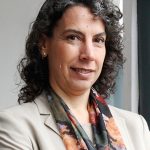 MSc. Carolina Trivelli, a Principal Researcher at IEP and an Associate Researcher at RIMISP, contributes her expertise in social inclusion, poverty, rural development, and financial inclusion. She served as Peru’s Minister of Development and Social Inclusion from 2011 to 2013. Her recent publications include works on rural poverty in middle-income Peru, mining and territorial development, tax policy reforms, and multidimensional poverty measurement. Trivelli serves on advisory committees for international initiatives and is a Counselor on Peru’s Fiscal Council.
MSc. Carolina Trivelli, a Principal Researcher at IEP and an Associate Researcher at RIMISP, contributes her expertise in social inclusion, poverty, rural development, and financial inclusion. She served as Peru’s Minister of Development and Social Inclusion from 2011 to 2013. Her recent publications include works on rural poverty in middle-income Peru, mining and territorial development, tax policy reforms, and multidimensional poverty measurement. Trivelli serves on advisory committees for international initiatives and is a Counselor on Peru’s Fiscal Council.

Dr. Rodrigo Yáñez, Director of the Chilean office at Rimisp, holds a PhD in Sociology and a Master’s from EHESS in Paris. An expert in integrating methodologies and data analysis for regional studies, he contributes to research and public policy development in Chile and Latin America. His specializations include social representations of inequality, social justice, and mixed methods approaches. Dr. Yáñez has lectured at various institutions and delivered presentations at universities in Mexico, Colombia, and Spain.
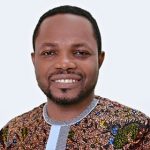
Dr. Fred Mawunyo Dzanku, an Associate Professor at the University of Ghana’s ISSER and a consultant at RIMISP, focuses on the economic behavior of households in Sub-Saharan Africa. His extensive research covers food security, poverty reduction, household welfare analysis, gender and agriculture, and evaluation of projects and programs using randomized field experiments. Fred holds a PhD in Agricultural & Food Economics from the University of Reading and has published in several prestigious journals.
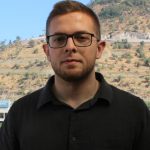 Andrés Fuica, a researcher at RIMISP with a master’s degree in Agricultural and Environmental Economics from the Pontificia Universidad Católica de Chile, focuses on econometrics, machine & deep learning, artificial intelligence, programming, and data analysis. His ongoing research examines agricultural commodities’ price analysis and smallholder farmers in Latin America. Fuica also holds a bachelor’s degree in Agricultural Sciences from the same institution.
Andrés Fuica, a researcher at RIMISP with a master’s degree in Agricultural and Environmental Economics from the Pontificia Universidad Católica de Chile, focuses on econometrics, machine & deep learning, artificial intelligence, programming, and data analysis. His ongoing research examines agricultural commodities’ price analysis and smallholder farmers in Latin America. Fuica also holds a bachelor’s degree in Agricultural Sciences from the same institution.
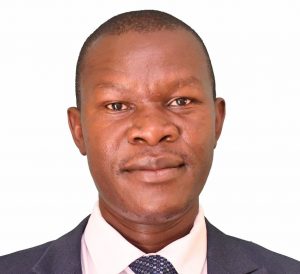 Dr. Kevin Obiero is a Senior Research Scientist at the Kenya Marine and Fisheries Research Institute with a PhD from the University of Natural Resources and Life Sciences, Vienna. His research focuses on sustainable aquaculture, fisheries management, and aquatic food systems in Africa. Dr. Obiero has led multiple donor-funded projects and published over 60 peer-reviewed articles. As Board Chair of the African Center for Aquatic Research and Education, he works to improve livelihoods and food security through climate-smart aquaculture technologies, market development, and evidence-based policy initiatives in the region.
Dr. Kevin Obiero is a Senior Research Scientist at the Kenya Marine and Fisheries Research Institute with a PhD from the University of Natural Resources and Life Sciences, Vienna. His research focuses on sustainable aquaculture, fisheries management, and aquatic food systems in Africa. Dr. Obiero has led multiple donor-funded projects and published over 60 peer-reviewed articles. As Board Chair of the African Center for Aquatic Research and Education, he works to improve livelihoods and food security through climate-smart aquaculture technologies, market development, and evidence-based policy initiatives in the region.
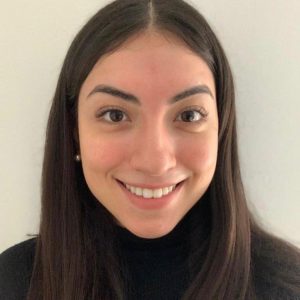 Camila Moraga Ortiz, a consultant at RIMISP and a PhD student in Agricultural and Nature Sciences at the Pontifical Catholic University of Chile, holds a master’s degree in Agricultural and Environmental Economics from the same institution. She specializes in econometric models, causal analysis, and data analysis. Her research areas include climate change, rural development, labor markets, and gender perspectives. Her ongoing research examines agricultural commodities’ price analysis and smallholder farmers in Latin America.
Camila Moraga Ortiz, a consultant at RIMISP and a PhD student in Agricultural and Nature Sciences at the Pontifical Catholic University of Chile, holds a master’s degree in Agricultural and Environmental Economics from the same institution. She specializes in econometric models, causal analysis, and data analysis. Her research areas include climate change, rural development, labor markets, and gender perspectives. Her ongoing research examines agricultural commodities’ price analysis and smallholder farmers in Latin America.
Nuestras oficinas:

- Chile: Huelén 10. Providencia, Santiago, Región Metropolitana. (+56-2) 2236 4557 | Fax (+56-2) 2236 4558.

- Ecuador: Checoslovaquia E9-95 entre Suiza y Moscú. Edificio Eveliza Plaza. Planta Baja. Quito. (+593-2) 5150144.

- Colombia: Carrera 9 No 72-61 Oficina 303. Bogotá. (+57-1) 2073 850.
